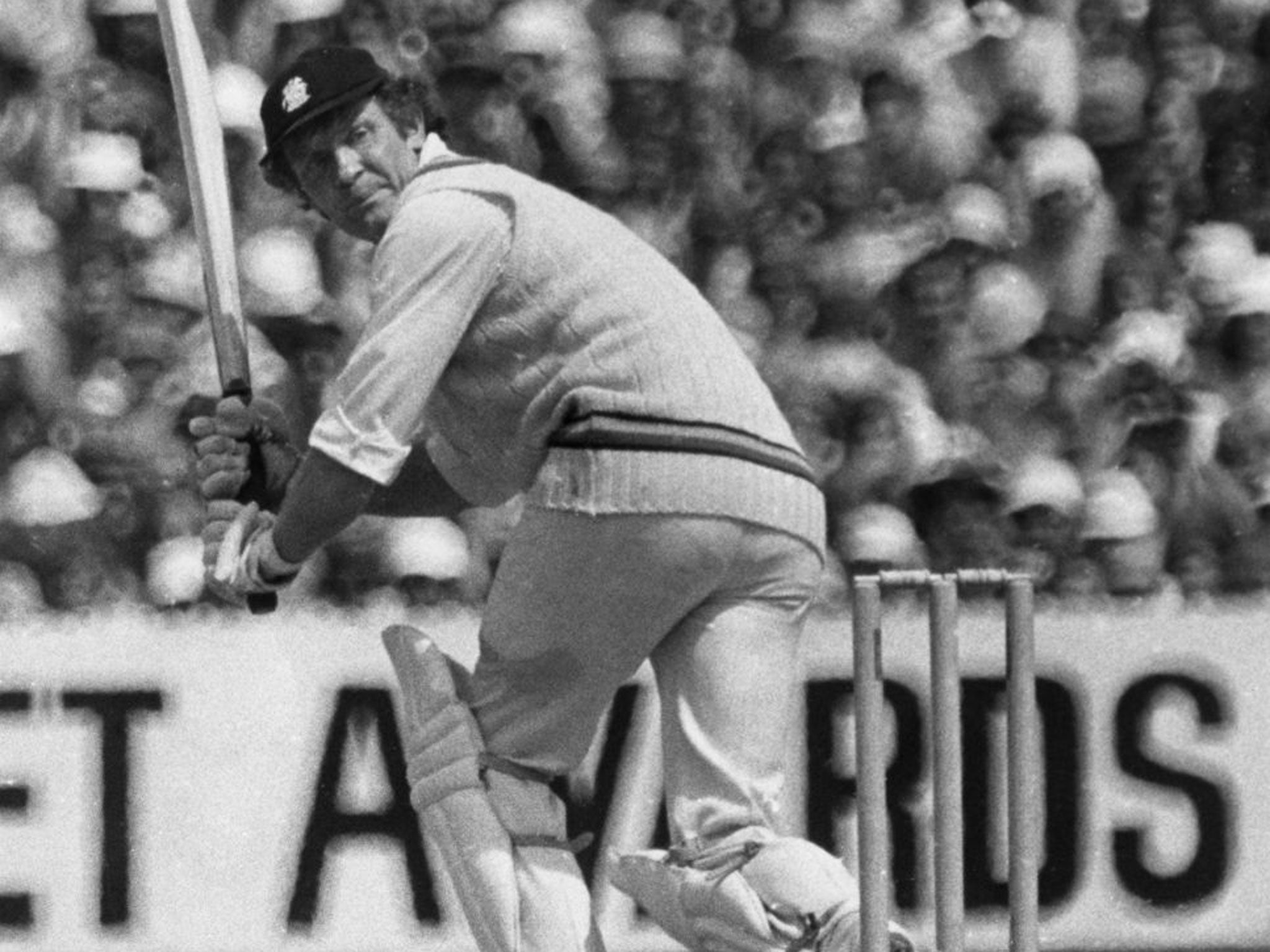Mike Denness: the Scotsman who captained England

Your support helps us to tell the story
From reproductive rights to climate change to Big Tech, The Independent is on the ground when the story is developing. Whether it's investigating the financials of Elon Musk's pro-Trump PAC or producing our latest documentary, 'The A Word', which shines a light on the American women fighting for reproductive rights, we know how important it is to parse out the facts from the messaging.
At such a critical moment in US history, we need reporters on the ground. Your donation allows us to keep sending journalists to speak to both sides of the story.
The Independent is trusted by Americans across the entire political spectrum. And unlike many other quality news outlets, we choose not to lock Americans out of our reporting and analysis with paywalls. We believe quality journalism should be available to everyone, paid for by those who can afford it.
Your support makes all the difference.Mike Denness, who died yesterday at the age of 72, was captain of England on one of their most troubled tours of Australia.
He ensured himself an everlasting place in the annals by dropping himself from the side during the 1974-75 series which the home team dominated through the sheer pace of Dennis Lillee and Jeff Thomson.
England were defeated 4-1 in a rubber which gave rise to one of cricket’s most celebrated rhyming couplets: “Ashes to ashes, dust to dust, if Lillee doesn’t get you, Thomson must.” The tourists in general and Denness in particular had no answer to the blistering pace that the duo generated.
His appointment as captain – still the only man born in Scotland to lead England – was beset by controversy from its inception. The side’s leading batsman at the time, Geoff Boycott, so resented being overlooked that he withdrew from the Test team.
Denness’s side had lost only one of 10 matches under his stewardship when they embarked for Australia in October 1974. By then he had led England to a remarkable drawn series in the Caribbean, with Boycott still in the side, and then won and drawn at home against India and Pakistan.
Nothing could have prepared England for what awaited them in Australia, nobody realised that they were about to encounter one of cricket’s immortal opening pairs of fast bowlers. Denness, with a top score of 27 in six Test innings, saw that there was nothing for it but to drop himself for the fourth Test. But England still lost that by 174 runs and were again heavily defeated in the fifth when he returned. It was a tribute to his determination that he should score 183 in the final match but Australia by then were without Thomson, who injured himself before the match, and Lillee, who pulled up during it. The return to form was just enough for Denness to cling on to the captaincy the following summer, also against Australia.
He gambled in asking Australia to bat in the first Test, but this left England to negotiate a wet pitch. They lost by an innings, Denness immediately offered to resign. He gave way to Tony Greig, who had been his vice-captain and predeceased him by four months.
As an exemplary county batsman, both with Kent and for a few years at the end of his career with Essex, he made 25,886 first-class runs at 33.48 and was a pioneer of athletic fielding. He returned to the game as an international match referee where he showed himself to be fearlessly principled. It was Denness who sanctioned six Indian players during a Test against South Africa in 2001-02. Both sides refused to play the next match with him in charge and the International Cricket Council deprived it of Test status.
Denness was a hugely successful captain of Kent leading them to six one-day trophies in the 1970s and was part of the Essex team that won their first Championship in 1979. He was Kent’s most recent president. Awarded an OBE belatedly in the last New Year’s Honours list he can lay solid claim to being the best batsman to come out of Scotland.
Join our commenting forum
Join thought-provoking conversations, follow other Independent readers and see their replies
Comments